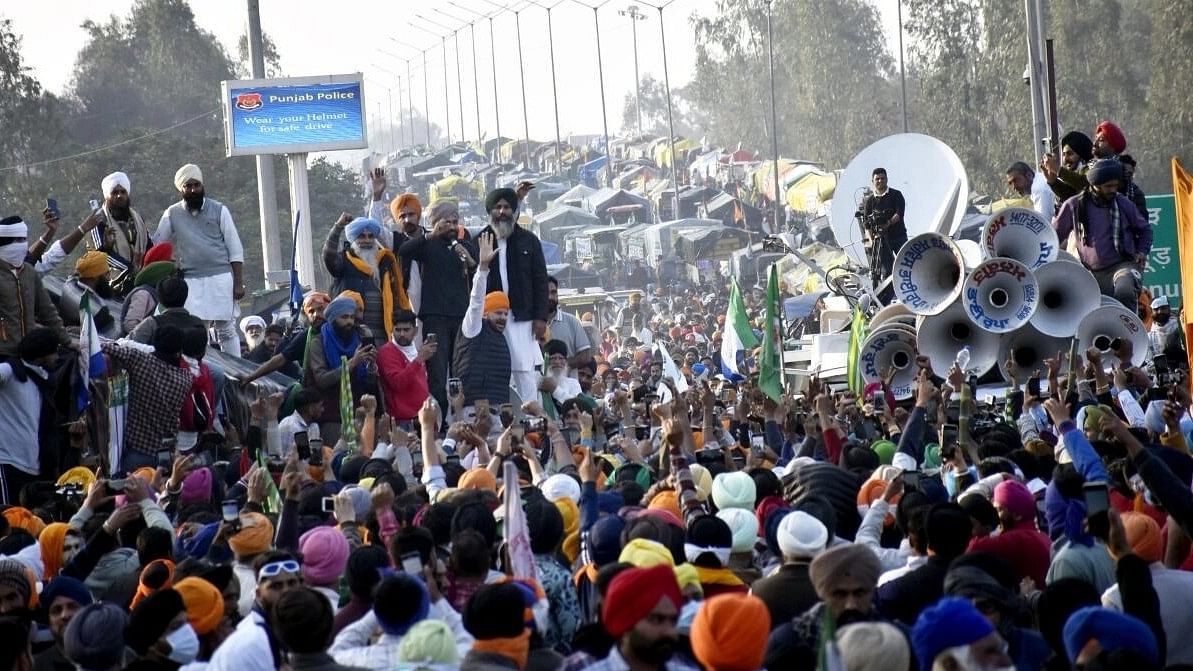
Farmers gather at the Punjab-Haryana Shambhu border during their 'Dilli Chalo' march in Patiala.
Credit: PTI Photo
After three years, farmers are again heading to Delhi with the slogan ‘Dilli Chalo’ following failure of the talks held with the Union government in Chandigarh this week. There was no agreement on the key demands raised by the farmers in the talks between their leaders and a team of Union ministers. The demands include the enactment of a law to guarantee a minimum support price (MSP) for all crops, implementation of the Swaminathan Committee’s recommendations, pensions for farmers and farm labourers, farm debt waiver, withdrawal of police cases, and justice for victims of the 2021 Lakhimpur Kheri violence. The farmers are aggrieved that their demands have not been conceded till now, though the government had made promises. They have decided to put pressure on the government now because they think the government would not want to alienate them in the run-up to the Lok Sabha elections.
The government has decided to counter the agitation the way it did three years ago. Delhi Police has invoked Section 144 of the CrPC, prohibiting the assembly of five or more people in the national capital till March 12. Delhi has been fortified with barricades, heavy vehicles and other obstructions, and dozens of companies of paramilitary forces and police have been deployed to stop the farmers from leaving their homes. Highways have been blocked in states like Haryana, which border the National Capital Region (NCR). The farmers are also equally determined and about 200 organisations and unions have mobilised their men and women for the march to Delhi. The year-long farmers’ agitation in 2021-22 was a watershed in the country’s history. The government had to repeal the contentious farm laws as a result of that agitation, and that was a partial victory for the farmers. They consider the present agitation as a continuation of that and are confident that they can win this time on the demands that were not fulfilled then.
The farmers have the right to stage a peaceful protest and it would be wrong if the government used draconian measures to counter the agitation. Farmers are demanding better prices and policies from governments in other parts of the world, too. There are protests in most countries of Europe, and farmers are free to stage them. Governments are not resorting to high-handed measures against them. There should be sustained deliberations between the farmers and the government and the grievances and demands should be addressed in good faith. The demands for statutory backing for the minimum support price and acceptance of all recommendations of the Swaminathan Committee are contentious. But the government has the responsibility to ensure that farmers get adequate remuneration for their produce and farming becomes a viable occupation.